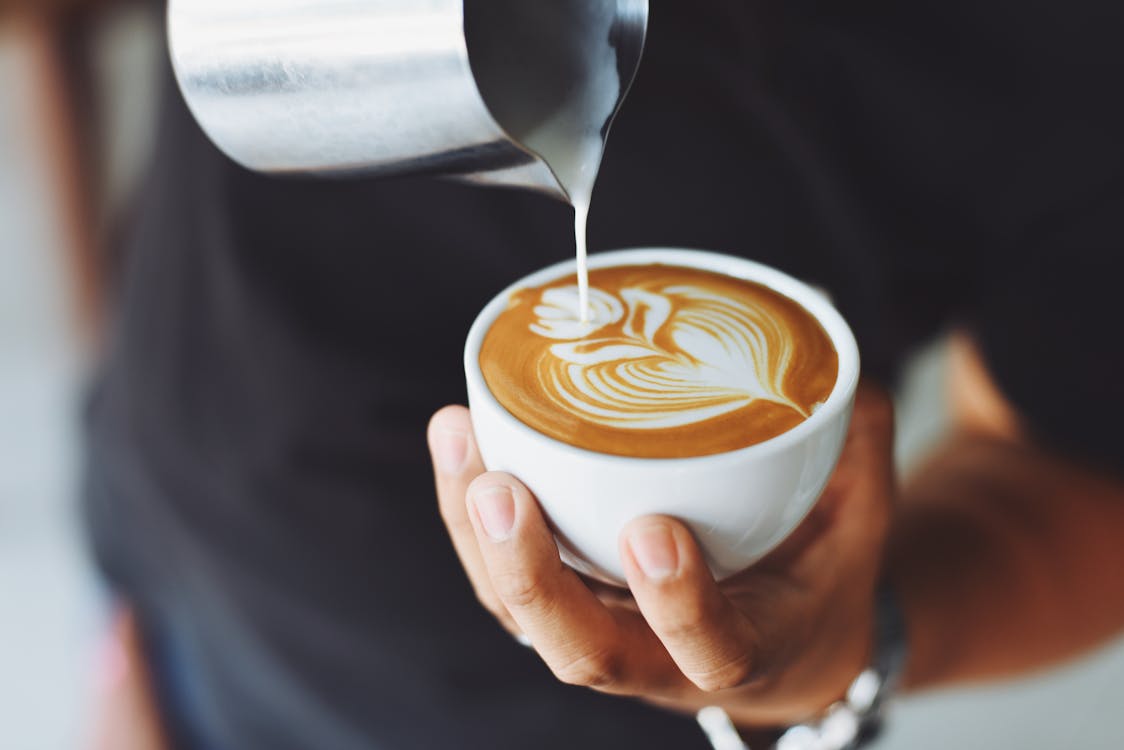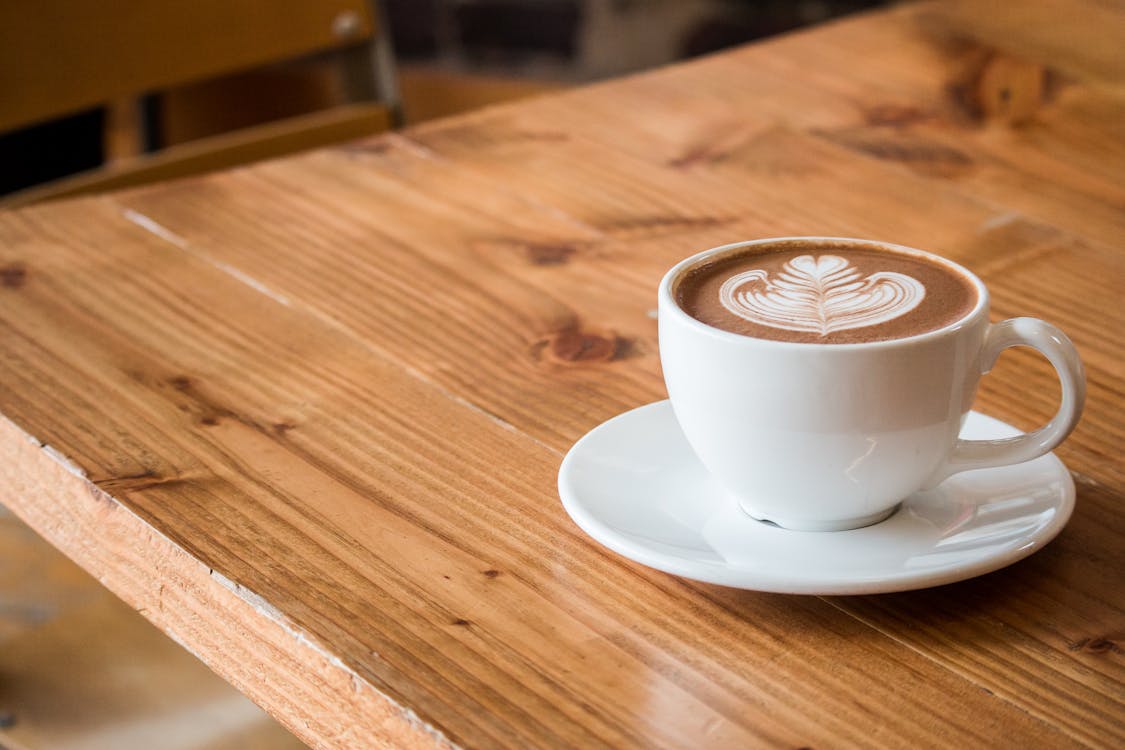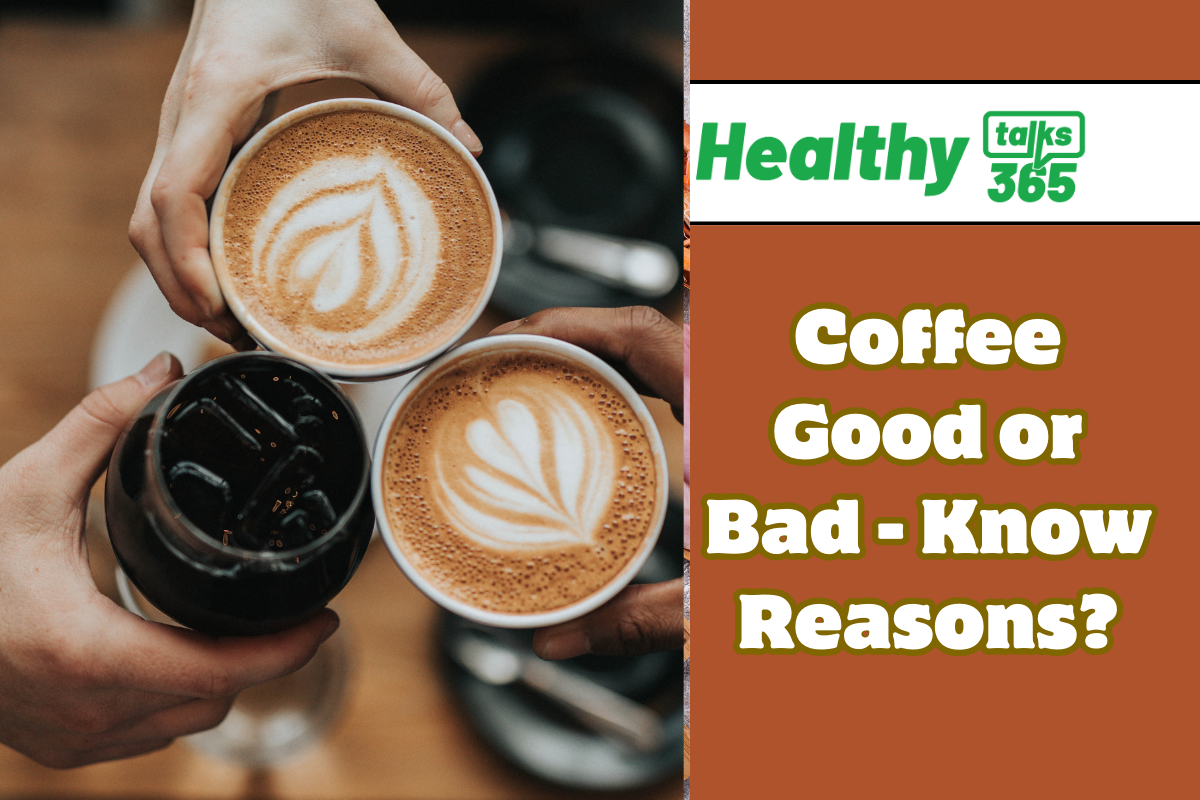Coffee Good or Bad – Know Reasons?
Why coffee is good?
Coffee can be good for your health in some ways. It contains compounds called antioxidants that can help protect your cells from damage. Some studies suggest that drinking coffee might lower your risk of certain diseases, like type 2 diabetes, Parkinson’s disease, and Alzheimer’s disease.
Additionally, coffee contains caffeine, which can give you a little boost of energy and help you feel more alert. It can also improve your mood and mental focus, making it easier to concentrate on tasks.
Some research suggests that coffee might even help you live longer. Some studies have found that people who drink coffee regularly tend to have a lower risk of death from various causes compared to those who don’t drink coffee.

1. Coffee improves the productivity rate
Coffee can help you work better because it has caffeine. Caffeine is like a natural boost for your brain, making you more awake and focused. When you drink coffee, caffeine goes to your brain and stops a chemical called adenosine from making you feel sleepy. This makes you feel more alert and ready to tackle tasks that need concentration.
Coffee can also make you feel happier and more motivated, which can help you get stuff done. Just the smell and taste of coffee can put you in a good mood and give you a mental lift.
Read Also:
Quick and Healthy Breakfast Ideas for a Busy Morning
2. Coffee prevents body from weakening
Coffee can make you feel more awake and energetic because it contains caffeine. This can help prevent you from feeling weak or tired, at least temporarily. Caffeine acts as a stimulant, which means it speeds up your heart rate and makes your brain more alert.
Coffee also has some other good stuff in it, like antioxidants, that might help protect your body from certain diseases. Some studies suggest that drinking coffee in moderation might lower your risk of getting diseases like diabetes, Parkinson’s, or Alzheimer’s. By keeping you healthier overall, coffee could indirectly help prevent weakness or frailty that can come with being sick.

3. Coffee lowers the sugar levels
Drinking coffee might help keep your blood sugar levels in check, especially if you’re at risk of getting type 2 diabetes. Some stuff in coffee, like chlorogenic acids and caffeine, seem to do good things for how your body handles sugar.
Chlorogenic acids, which are in coffee beans, can slow down how much sugar your body absorbs from your food and how much sugar your liver makes. This means your blood sugar levels might not go up as much after you eat.
4. Coffee helps in reducing weight
Coffee can be helpful if you’re trying to lose weight, mainly because it has caffeine. Caffeine is like a natural booster for your body. It can speed up your metabolism temporarily and help your body burn fat faster. When you drink coffee, caffeine makes your nervous system more active, and this can break down fat stored in your body, using it for energy.
Coffee might also make you feel less hungry, which means you might eat less throughout the day. Some studies show that caffeine can make you feel fuller and reduce your appetite.
Why is coffee bad?
Coffee can have some downsides for health, especially if you drink a lot of it. One big concern is caffeine, which is in coffee. It can make some people feel jittery, anxious, or have trouble sleeping. It can also speed up your heart rate and make your blood pressure go up, which might not be good if you have heart problems or high blood pressure.
Another thing to watch out for is that coffee is acidic, which means it can irritate your stomach and cause problems like heartburn or acid reflux. And because coffee makes you pee more, it can lead to dehydration if you don’t drink enough water.
Plus, drinking too much coffee might increase your chances of breaking a bone, especially if you’re a woman who’s gone through menopause. And if you load your coffee up with sugar, cream, or syrup, you’re adding extra calories and sugar, which can lead to weight gain and other health problems.
1. Coffee increases the anxiety
Coffee has caffeine in it, which can make some people feel more anxious. Caffeine is like a natural energizer that can make you feel more awake and alert. But for some folks, especially those who are prone to feeling anxious, caffeine can make them feel jittery or nervous.
Here’s how it works: caffeine blocks a chemical in your brain called adenosine, which helps you relax and feel sleepy. When adenosine is blocked, other chemicals in your brain, like dopamine and norepinephrine, become more active, which can make you feel more alert. But for some people, this increased activity can lead to feelings of anxiety or nervousness.
2. Coffee may cause vomiting
Sometimes, drinking too much coffee can make some people feel like they want to throw up. This can happen if you drink a lot of coffee, especially if your stomach is empty.
One reason for this might be because coffee is a bit acidic, which can bother your stomach lining and make you feel sick. Also, caffeine, which is in coffee, can speed up how fast your stomach empties, and this might make you feel queasy, especially if you haven’t eaten anything.
3. Coffee may lead to irregular heartbeat
Drinking too much coffee, which has caffeine in it, can sometimes make your heart beat in a funny way. This is because caffeine can make your heart beat faster and might even make it feel like it’s skipping beats.
For some people, especially those who are sensitive to caffeine or have existing heart problems, this can lead to irregular heartbeats. These irregular heartbeats can feel like your heart is fluttering or pounding, and they can be pretty scary.

4. Coffee causes insomnia
Drinking coffee before bed can make it tough to fall asleep. That’s because coffee has caffeine, which is like a natural booster for your body. It keeps you awake and alert by blocking a chemical in your brain that makes you feel sleepy.
Even if you’re someone who usually has no trouble falling asleep, having coffee close to bedtime can mess with your sleep cycle. Caffeine can make it hard for your body to wind down and relax when it’s time to go to bed.




